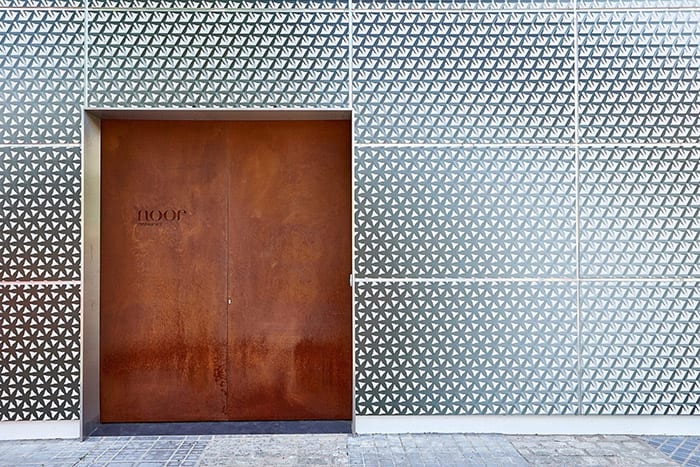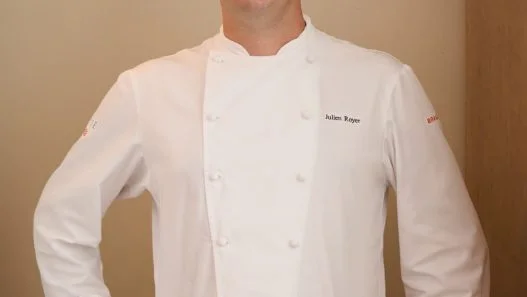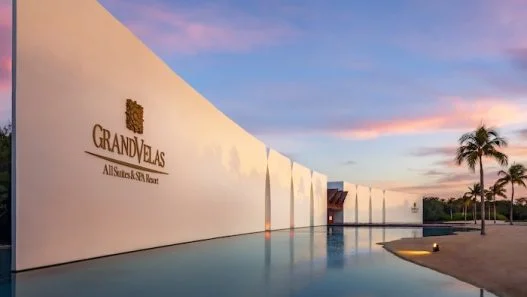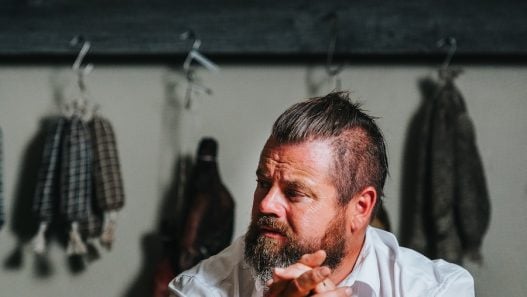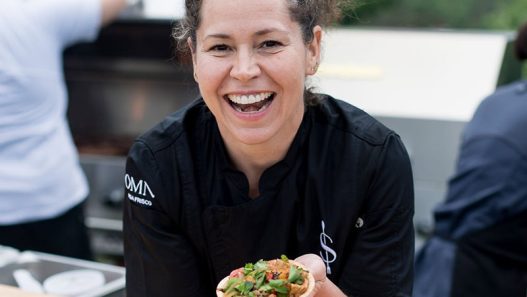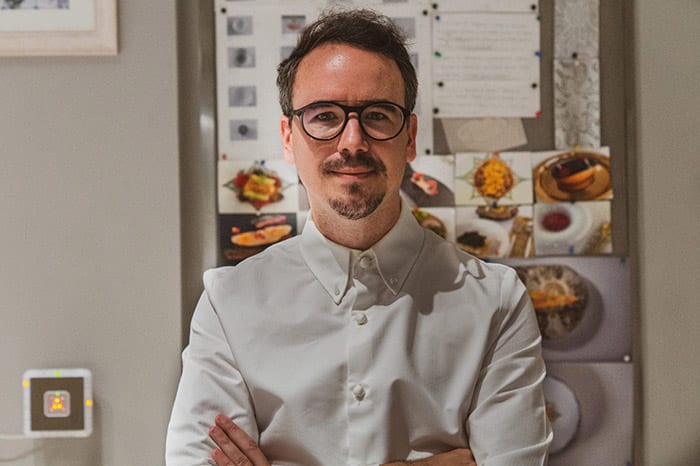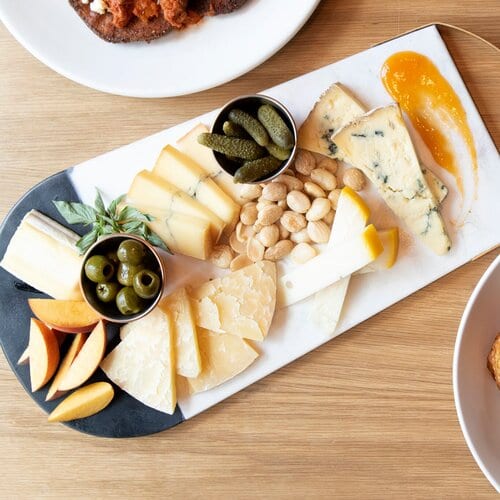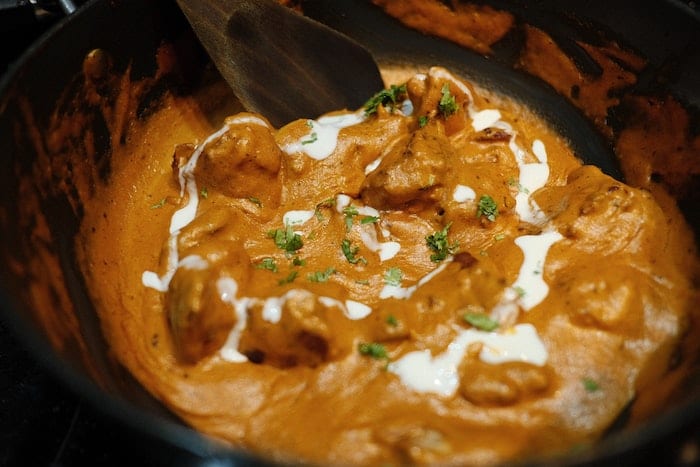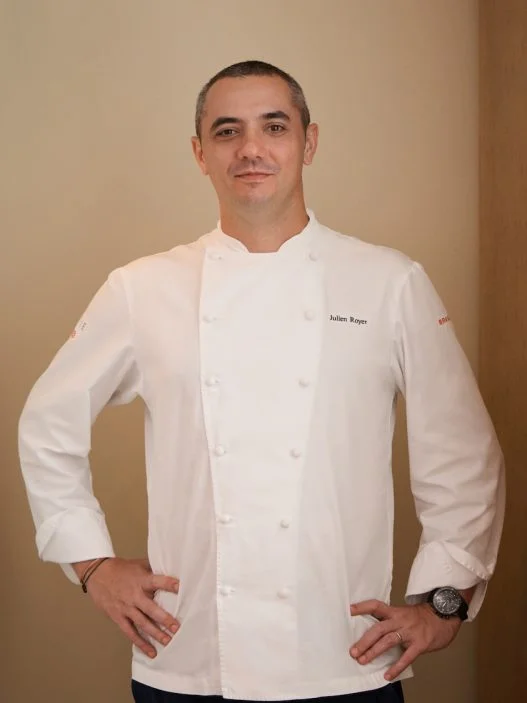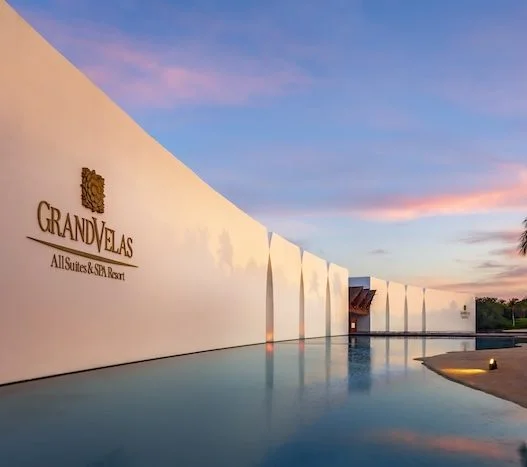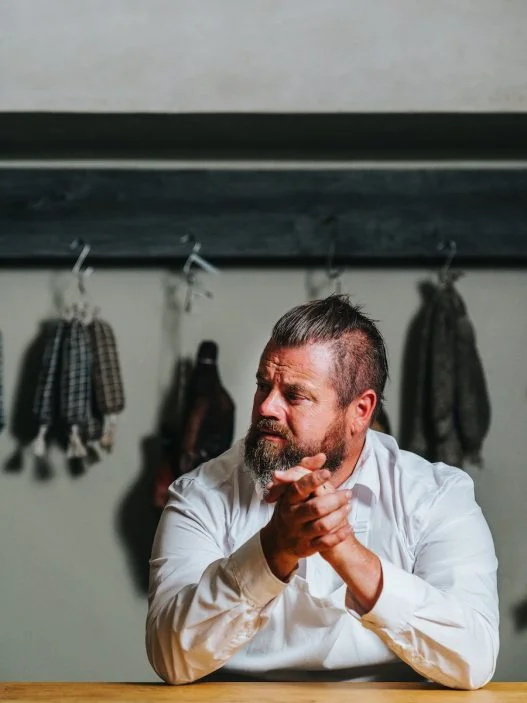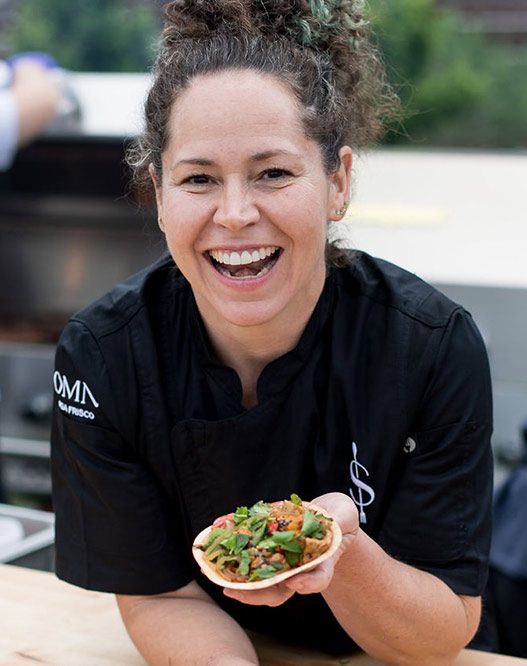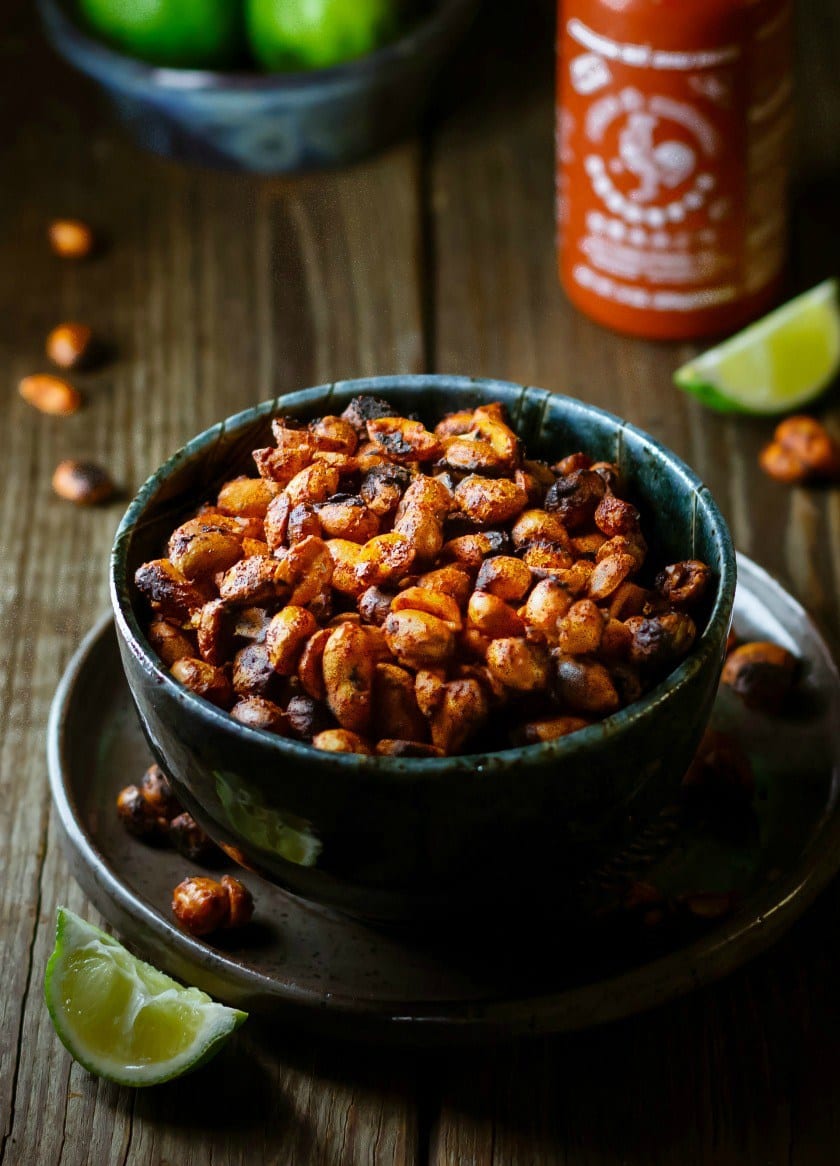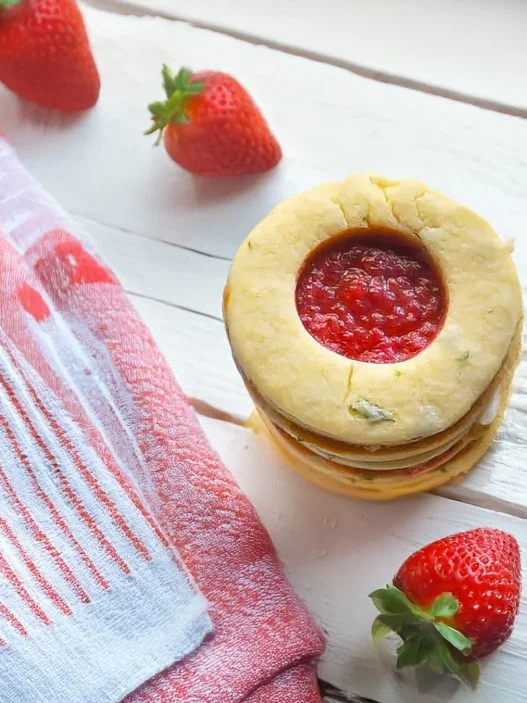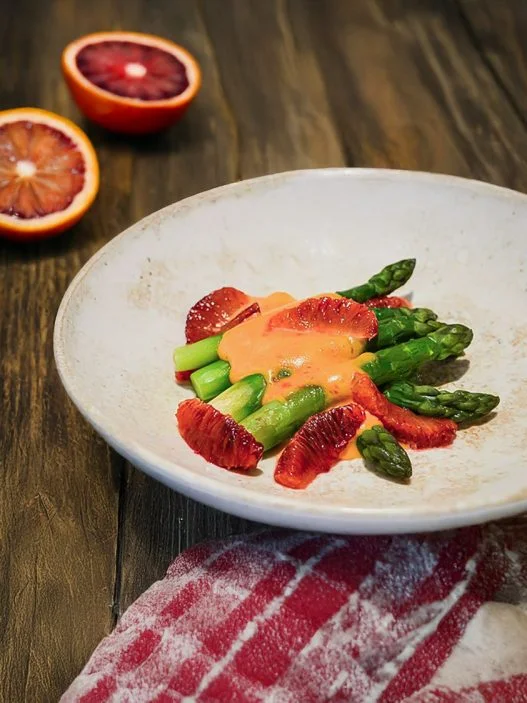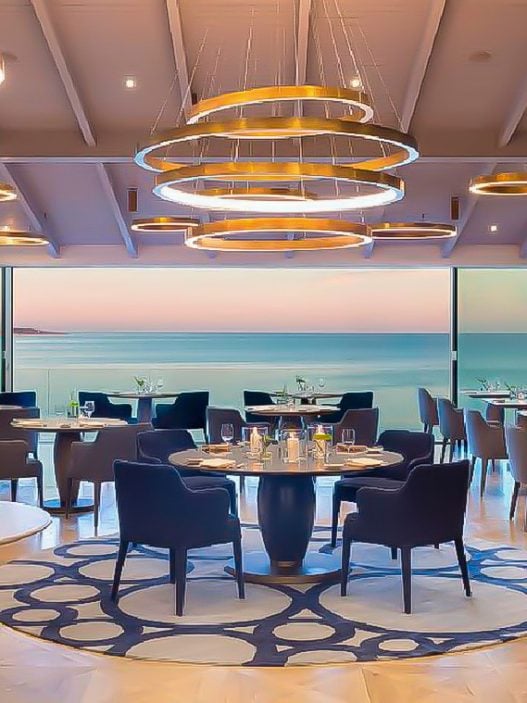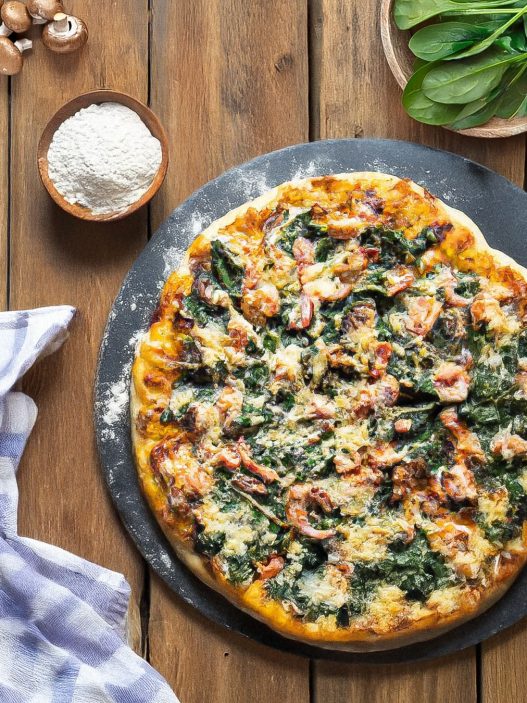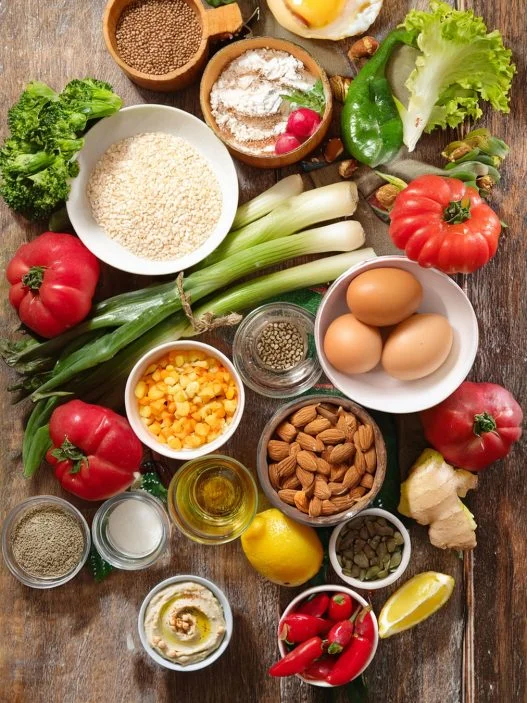Like a culinary Indiana Jones, Paco Morales recovers, studies and shapes a new epicurean language from the ruins of a prosperous past. He is a chef of history – a gastrochaeologist, so if you love history then the experience at Paco Morales’ restaurant Noor in the South of Spain is an absolute must.
Noor, an illuminating restaurant hidden in the ancient heritage of Córdoba in Andalusia – once one of the brightest city lights of the modern world; the Rome of the time – has received two Michelin stars within just three years, a maximum of 3 soles (suns) from the by far most prestigious Spanish dining guide Repsol, and just recently the restaurant of ancient tales blasted into The Best Chef Top 100 with a first new entry ranked as #29.
And yet this could be the first time you read about Noor. If so that’s ok.
Spanish is the language of a former empire, today natively spoken by more than half a billion people from Barcelona to Buenos Aires. In many ways, the language and its people live within their own universe of Hispanic multinational cultures and with general little need to read or view English media – like most non-Spanish speaking people don’t have a greater interest in what goes on in the Hispanic-speaking counterpart.
But in Spain and Latin America chef-owner Paco Morales is a full-blood culinary celebrity with appearances on Masterchef and an own episode on “Platos” – the Hispanic Amazon Prime’s culinary series à la what “Chefs Table” is to Netflix.
Naturally, Paco Morales’ project is also known and respected in international culinary circles; especially his passion for his region’s forgotten gastronomic heritage when the Cordobán caliphate was at the peak of its power, which comes with a mist of exotic mystic surrounding it. It also helps that Morales is beloved by Spain’s most famous chefs, having worked at Ferran Adrià’s five-time awarded best restaurant in the world, elBulli, and most significantly headed the stoves at legendary Mugaritz under Andoni Aduriz for half a decade, before going solo.
Today Paco Morales is one of the most prominent figures in Spanish gastronomy, with Ferran Adrià calling him “one of the most exciting chefs in the world.”
A Modern Fata Morgana
What makes Noor (“light” in Arabic) hyper interesting is the culinary history lesson in Andalusia’s Moorish heritage from the 10th to the 15th century, when Andalusia for more than 800 years was known as Al-Ándalus under Arabic rule, that Morales offers.
From the geometric, medina-like design, to dishes that seamlessly balance ancient flavors and modernist techniques, Noor celebrates the sensuality of Andalusia — the patterned tiles, the voluptuous curves, the notes of cinnamon, the stain of saffron.
Although Noor is located in the working-class suburb where Paco Morales grew up, a couple of kilometers away from Córdoba’s historic center, you practically feel like sitting in a house in the middle of Sahara a thousand years ago; in a modern fata morgana of ancient tales – a feeling Morales has worked hard on creating alongside a team of historians, archeologists, decorators and interior designers.
Noor’s cuisine has a similar inspiration with modern culinary techniques combining with the flavours, aromas and subtleties of dishes from the past – up to now from the 10th to 15th century through so far four seasons and with a very strict code of only choosing ingredients 100% true to what was used then.
This leaves out a lot of the options we are used to today such as cacao (chocolate), maize, potatoes, tomatoes, peppers, pumpkins, and much, much more. All products which didn’t arrive in Europe before later with Christoffer Colombus’ discovery of America in 1492.
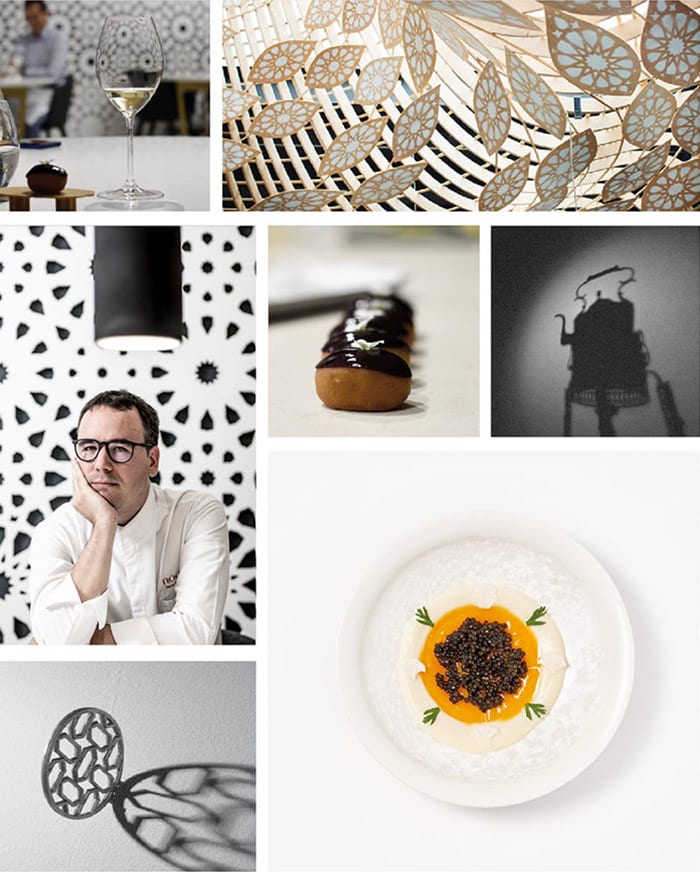
Noor is something of a cultural project to Morales who joined forces with food writer Rosa Tovar, a Spanish cookbook author and food scholar, as well as a team of culinary historians to access centuries-old recipes, which he incorporates into three tasting menus of varying lengths.
“I met Rosa about 6 years ago in Madrid through a mutual friend who told me that if I was studying Al-Ándalus’ kitchen, it would be very interesting for me to meet her historian friend as she always spoke of how forgotten the Al-Ándalus kitchen was and the importance of Arab cuisine to how we cook today. I met her, and from that first meeting we began to work and investigate together.”
As a result, they collated all the information necessary to bring the refined aromas and flavors of Al-Ándalus into the 21st century and gave them the modern avant-garde twist that always has been Morales’ trademark. Noor’s guests can enjoy the evolution of the Andalusian legacy, century by century, in Morales’ interpretation and today recognizable in Andalusian cuisine. It’s quite an accomplishment. If you read Paco Morales’ giant cookbook on Noor you’ll also find extensive lists of products from then, as well how they were used and by who.
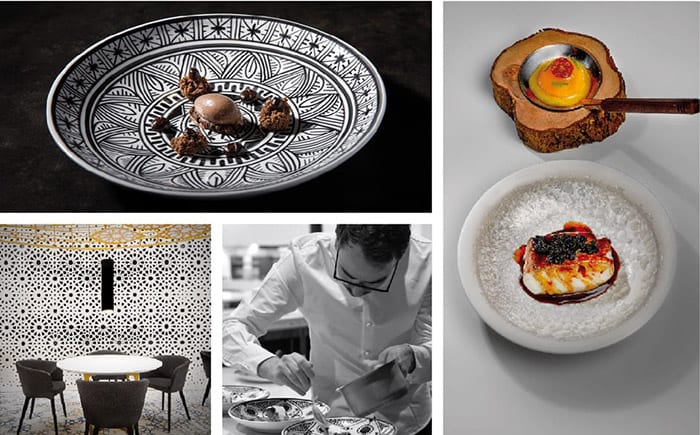
A good example of the work that goes into the creation of each dish at Noor at a historical, aesthetic, and technical level, is Puerta del Perdón. An iconic dish of the restaurant that for Paco means the perfect reflection of that moment in his project.
Part of the 10th century season, this fried snack made with brick dough and finished with garlic puree, parsley mayonnaise and coriander, was born from Morales’ concern to capture the details of the Mosque-Cathedral of Córdoba in an edible form. And after discarding the obvious option of liquid nitrogen, Morales turned to a metal craftsman to recreate the typical fried flower molds, this time with one of the decorative motifs featured in the “Door of Forgiveness” (Puerta del Perdón).
Trial and error lead them to the perfect brick dough for this technique and so this little work of art was born; an example of edible culture.
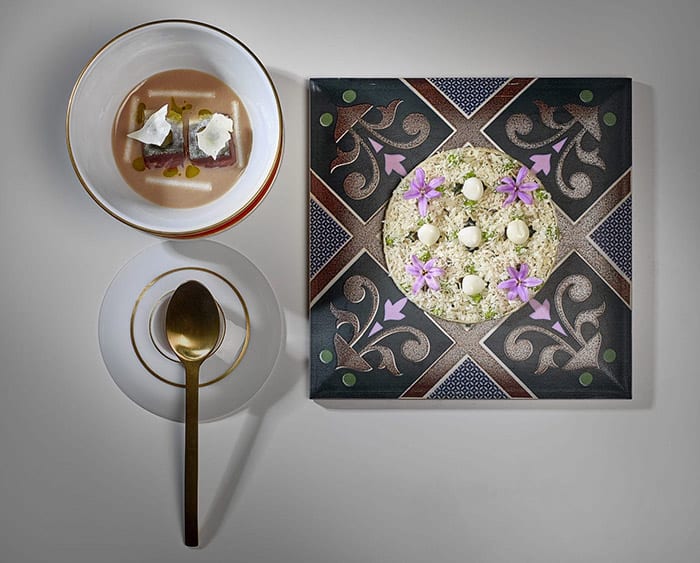
So far NOOR is in the middle of the fifth season; a retro perspective of the four previous seasons that focused on either a century or two.
Year 0 – Caliphate of Córdoba {10th century}
A season that immersed in the Andalusian cuisine of the 10th century, a period of political, cultural, and commercial splendor fostered by the Caliphate of Córdoba. Here Noor began its own particular universe through three tasting menus: Qurtuba, Madinat Al-Zahra, and Al-Ándalus.
Year 1 – Taifas Kingdoms {11th century}
Here Noor continued its advance in time. In this, the year 1, they recovered the lost flavors of the three Taifa Kingdoms and their cultures, which lasted the longest after the dissolution and fall of the Caliphate of Córdoba in 1031. They also gave names to the three menu alternatives of the season: Slav, Berber, and Andalusí.
Year 2 – Almoravids and Almohads {12th and 13th centuries}
In this fascinating season, Noor collected the heritage of the Almoravid and Almohad Empires that settled in the Muslim territories of Africa and the Iberian peninsula in the 11th, 12th, and 13th centuries. During this season I visited Noor for the first time and immediately fell in love with Morales’ project.
Year 3 – Nasrid Kingdom {14th century}
Noor maintained its line of not integrating ingredients from the American New World in its 14th-century cuisine that, even without potatoes, tomatoes, corn or cocoa took a final somersault in a way that the culinary offerings continued as unmatched and resounding as in Year 1.
Year 4 – Retrospective {10th – 14th centuries}
The current season is the result of the selection of the dishes that best represent the four previous seasons in a way that guests can make the culinary-cultural trip from the beginning. I had the grand Al-Ándalus menu again just recently – a mouthwatering melting pot of 500 years’ history – and was again blown away by its originality.
_____________________________
“At Noor I believe we are generous with what we put on the plate, with how we greet and communicate. We want you to feel at home in our home. Once you enter Noor the idea is that you sit in a house in the middle of the desert. We have worked on it with decorators and interior designers at an experiential level. I think the most important thing is to show how people of that time would eat and live. How a refinement of our culture from a thousand years ago would be like.” – Paco Morales.
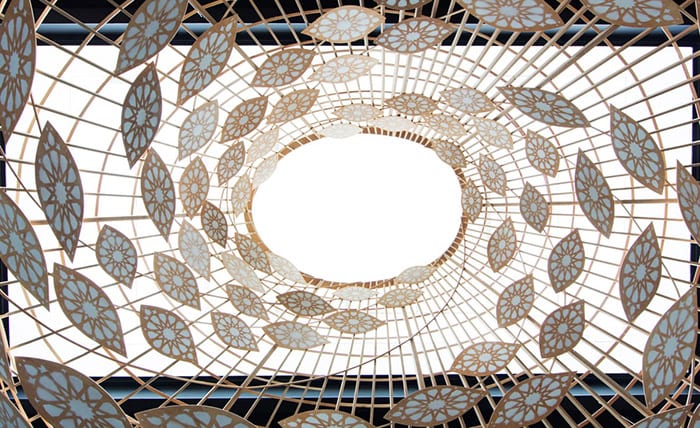
A Father’s Influence
Paco Morales’ cooking career began when he as a kid worked with his father for many years in his take-out business, where he fried fish and roasted chicken up until he was a teenager. This time influenced him a lot, working side by side with his father. This was where he learned the reality of a restaurant business, the toughness, and how challenging the industry can be. One day you’re up, the next you are down.
“That shaped me early on and is also why it always is important for me to mention normality and never forget where you come from. And above all to value this, for me, for my team, and especially for the new people who come to work with us, because many times it seems like me getting to where I am has been easy, but nothing can be further from the truth.”
“In my case at a professional level, having worked with my father means a lot to me and I equate it with working with Ferrán Adrià or Andoni Aduriz. In the end, my father formed me as a person and professional, and it was with him I realized that I wanted to dedicate myself to gastronomy. Thanks to the challenge and toughness in my dad’s business I can do what I do today. This is important to say; how my father from such a small take-out roast chicken business transmitted the values of cooking and respecting people to me. I can say I have been working for 20 years with Josean (Alija), Ferrán, and Andoni, but honestly what changed and shaped me the most was working with my father.”
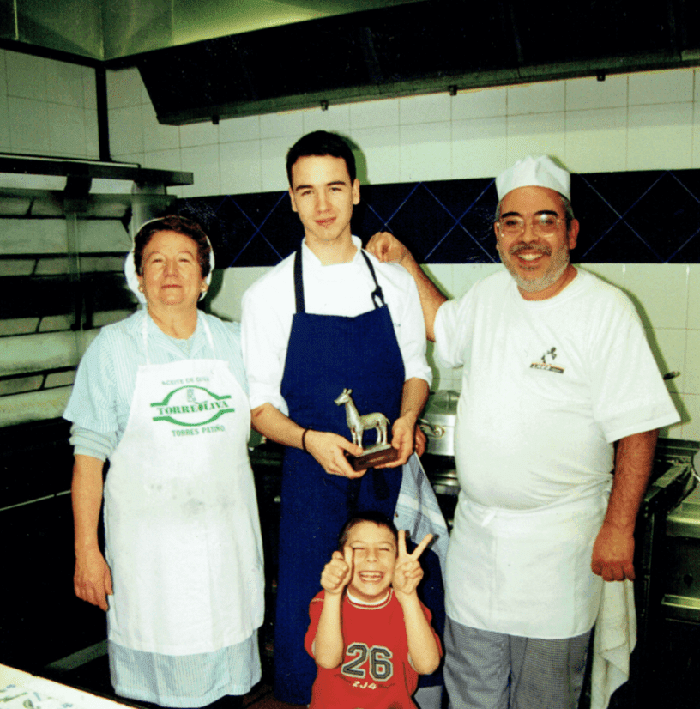
Despite all the credit that Morales gives to his family shaping the way he is today, then at some point he had to leave the nest. He traveled across Spain, from the family business to work for Josean Alija, the Adriá-brothers and Andoni Luis Aduriz and with it, learn from some the greatest in Spain, and by that, also in the world. You not only have to know techniques and possess creativity in order to originate a world like Noor’s. It requires a lot of discipline, hard work, methodology, and above all, maturity.
“Many things had to happen to get to where we are today. I had to go through my dad and his restaurant, then to Bilbao for a year, then with Andoni for 5 years, then elBulli for a year, then Andoni leaves his kitchen to me as a 22-year-old boy… Just imagine that!”
“Yes, things were close to perfect, but I was not mentally prepared to face a project of these characteristics. Logically brilliant things were done, many goals were achieved like two Michelin stars with Andoni 15 years ago, but I wasn’t prepared. Over time you see the mistakes you’ve made in the past and you repair them. I and any human with so much burden and management at such a young age; deep down, we are not prepared for THAT responsibility.”
Failure has also been a part of the journey for this chef of history. Still at a young age, it was time for him to leave the stoves of others – his second nest in Northern Spain – and become the leading star. The first attempt would be in Madrid, at restaurant Senzone. The Spanish capital was a lot for the twenty-something who also tried for the second time in Valencia before understanding that his third attempt had to be very different.
“I went to Madrid to open my first restaurant and had to close. Then I got hired to direct Spanish tennis star Juan Carlos Ferrero’s restaurant in Valencia, where I shaped a very creative kitchen that everyone wanted to try, but also there I had to close suddenly because of an insane rent-increase. At that point, I said to myself: “Ok, from now on I’ll be the owner of my future and do what I want, and for that, I have to finance it myself going forward. If I didn’t fail those two times and learn from it or had the opportunity to have other places to make mistakes in, Noor wouldn’t be what it is today.”
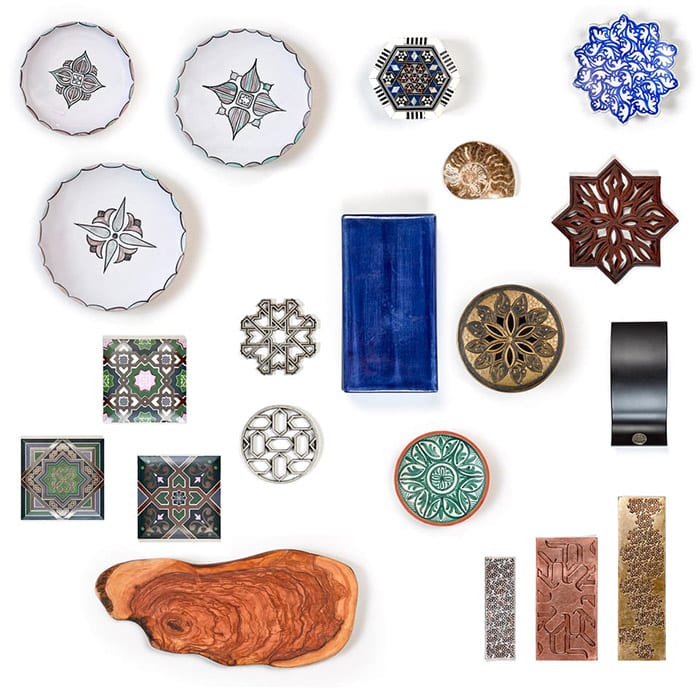
The New World
Now Noor’s kitchen prepares for a historic moment that will change everything. The upcoming 15th century comes loaded with new ingredients and possibilities thanks to the arrival of Columbus to America in 1492. His ships not only returned to Spain full of gold and emeralds, but they also brought new culinary treasures; cocoa, avocados, tomatoes, and corn are just a few examples.
Just as in 1499 the Andalusian voyages set sail to continue the work of Columbus came across lands such as the Gulf of Paria in Venezuela, famous for its cocoa, today Paco Morales is faced with a major adventure, expressing those new flavors, ingredients and stories on what will be the next menu at Noor from September 2021.
“We created a story, a character, a limited, great idea, and now I’m afraid of the opposite; to cook again with the products that we all the sudden will have access to. At first, it was very hard to limit ourselves. But in my case, that’s a motivation. I think that the more difficulties I’ve had, the better I’ve done. I am a person that grows when facing adversity; it’s in my personality. When the stream is against me, I row the boat even harder.
Within limitation, creativity often thrives. The best wines in the world are those whose stocks have had to fight their way down through poor soil to reach lush ground. They become strong, full-bodied, and exceptional, and even though it seemed that all the restrictions and self-imposed rules by Paco Morales could limit his creativity, or his potential to create a gastronomic journey that brings history to the table, then the Andalusian chef has achieved just the opposite.
Now finally touching the fertile land of today, his upcoming trip to the Americas could become his most exceptional work to date.
Noor, Calle Pablo Ruiz Picasso 8, Córdoba, www.noorrestaurant.es
